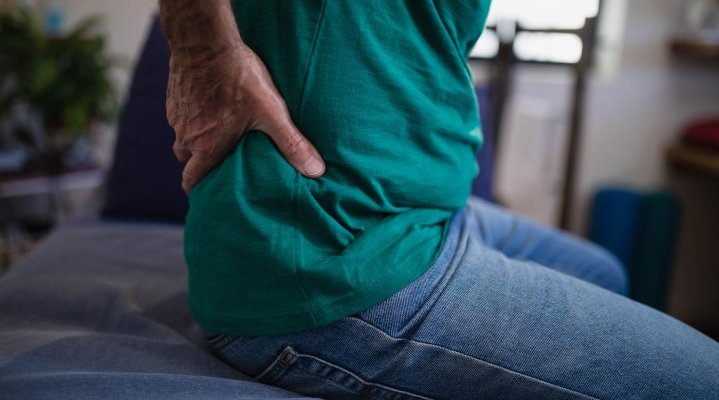Health Hub
Persistent hip pain: when to consider surgery

The hip is the largest ball and socket joint in the body.
It’s susceptible to damage given the level of continuous wear and tear it receives on a daily basis. And, this degeneration can lead to injury or osteoarthritis.
Hip replacement surgery can correct this. If your hip problems are affecting your quality of life day-to-day, surgery could mean your life improves tremendously.
So how do you know if you need hip replacement surgery?
Orthopaedic Consultant Mr Angus Lewis (MBBS FRCS(Orth)), understands that having surgery can be daunting.
He gives his advice on what signs to look for and what you can expect with hip replacement surgery.
Hip pain that doesn’t go away
Hip replacement could be appropriate if you start to experience persistent hip pain;
- at night
- at rest
- during exercise
- or all three
Hip pain that that gets in the way of daily life
If your hip pain starts to interfere with everyday tasks and things you enjoy, this is the biggest sign.
If left untreated, this discomfort will lead to a loss in mobility and independence.
Sometimes it is then tempting to learn to live with the pain. This can mean relying on pain relief medications and walking aids. And, everyday life could become more difficult as your mobility diminishes.
What hip replacement surgery involves
Hip replacement surgery removes the damaged part of the hip joint, and replaces it with an artificial one known as a prosthesis.
Once completed, it will typically last a minimum of 15 years.
What to expect after surgery
If your hip pain was due to your hip joint only, then you can expect to be free from pain once you’ve recovered from surgery.
Sometimes, back and leg pain can still persist after surgery to correct the hip joint.
Avoiding muscle stiffness after surgery is really important.
Surgery causes the muscles to become swollen and inflamed, so it’s important to get moving. This also helps prevent the risk of deep vein thrombosis.
It’s common for patients to get up and out of bed the same day, or the day after surgery, with the help of physiotherapists and nurses.
Most patients are also able to be weight bearing with the use of a Zimmer frame, and then quickly progress to using crutches.
Before our medical team can discharge you from hospital, you must be able to confidently walk on your own. This can be walking slowly, and using crutches or walking sticks.
You also must be able to move safely from your bed to a chair, and use stairs while you’re still in hospital. This is to ensure your safety when you get home and that you can get around as normal.

What is hip replacement surgery?
Recovering well from surgery
Typically, hip replacement surgery involves a stay in hospital of between three and five days.
In the first two weeks after surgery, hydrotherapy can really help your recovery too.
You can expect post-operative rehabilitation to take around three months. But, you may continue to see improvements for up to a year. There are also practical steps you can take yourself to help your recovery.
Will the operation leave a scar?
After hip replacement surgery, most scars are 10 cm or less in length.
Will I need more than one operation?
If you only have hip pain on one side, it doesn’t necessarily mean that you’ll go on to need surgery on the other hip.
If you’re experiencing pain in both hips, usually we operate on the worst hip first.
Within a year, you can decide if you’d like to have a hip replacement on the other side.
More information
- If you are experiencing persistent hip pain, your first step should always be to consult your GP. (Don’t have a GP?)
- If you have spoken with your GP and would like to see a specialist you can make an enquiry online to arrange a consultation
- View our physiotherapy and hydrotherapy pool facilities available after hip replacement surgery
Article Sections
Latest Hospital News
Should you wish to speak to our press team, please visit Press Enquiries




